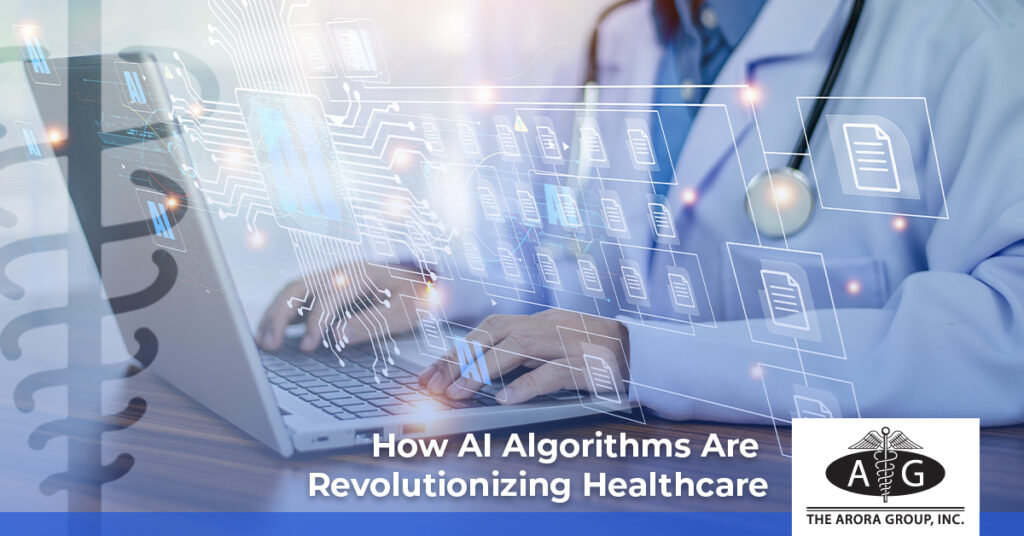There’s no question healthcare is ever-changing. From regulatory requirements to breakthroughs in the science of treatment, it’s a field that requires employees to stay on top of their game just to keep up with industry changes.
However, one of the latest evolutions in healthcare stems not from clinical treatment improvements or government rules. Artificial intelligence (AI) and the computer algorithms behind this phenomenon are about to reshape the entire healthcare landscape. From streamlining diagnoses to enhancing patient outcomes, AI is paving the way for a more efficient and effective healthcare system.
Understanding AI Algorithms
First, let’s lay the baseline of an AI algorithm. An AI algorithm is a set of rules or procedures designed to enable machines to perform tasks that typically require human intelligence. These algorithms are written in computer language and are the core of AI systems. AI algorithms allow computers to learn from data, recognize patterns, make decisions, and solve problems autonomously.
AI algorithms come in various forms, each tailored to specific tasks and applications. Machine learning algorithms, for example, enable computers to improve their performance on a task over time by learning from experience and data. Deep learning algorithms, a subset of machine learning, are particularly adept at processing and analyzing large amounts of complex data, such as images, text, and audio.
The essence of an AI algorithm lies in its ability to process data, extract meaningful insights, and perform intelligent actions without human intervention.
AI in Healthcare: Changing Patient Diagnosing
One of the most profound impacts of AI in healthcare is its ability to streamline diagnoses. Traditionally, patient diagnosis relied heavily on the expertise of healthcare professionals. Admittedly, it’s a human-centered process that varies in accuracy and speed.
However, AI algorithms can analyze vast amounts of patient data rapidly and accurately, aiding clinicians in making more informed decisions. For instance, machine learning algorithms can sift through medical images such as X-rays, MRIs, and CT scans, detecting abnormalities or anomalies that might go unnoticed by the human eye. By flagging potential issues early on, AI helps expedite the diagnostic process, leading to timely interventions and improved patient outcomes.
AI and Treatment Personalization
Personalized medicine is here in part thanks to AI. These intelligent programs analyze patient data, including medical history, genetic predispositions, and lifestyle. Personalization ensures patients receive interventions that are effective and aligned with their unique needs and circumstances. For instance, AI-powered predictive analytics can help identify patients at high risk of developing certain conditions, enabling healthcare providers to intervene proactively and mitigate the risk of ill health.
AI and Healthcare Resource Allocation
AI algorithms also play a pivotal role in optimizing resource allocation within healthcare systems. The AI can analyze data on patient flow, resource utilization, and operational efficiency and identify areas for improvement. It’s beneficial to help mitigate the chronic staffing shortages in the field. For example, AI-powered predictive analytics can forecast patient admissions, enabling hospitals to adjust staffing levels and allocate resources accordingly. Scheduling systems can optimize appointment booking, reduce wait times, and maximize healthcare facility utilization. Streamlined operations and resource allocation mean healthcare organizations eliminate bottlenecks to work smarter.
Interested in AI?
Arora Group bridges the gap between military healthcare facilities and their clinical and administrative talent. We’re an excellent partner for job seekers interested in cutting-edge medicine and the exciting possibilities of AI and other modern approaches to care delivery. Talk with our team today to take advantage of our extensive networks. We can help move your career forward.

